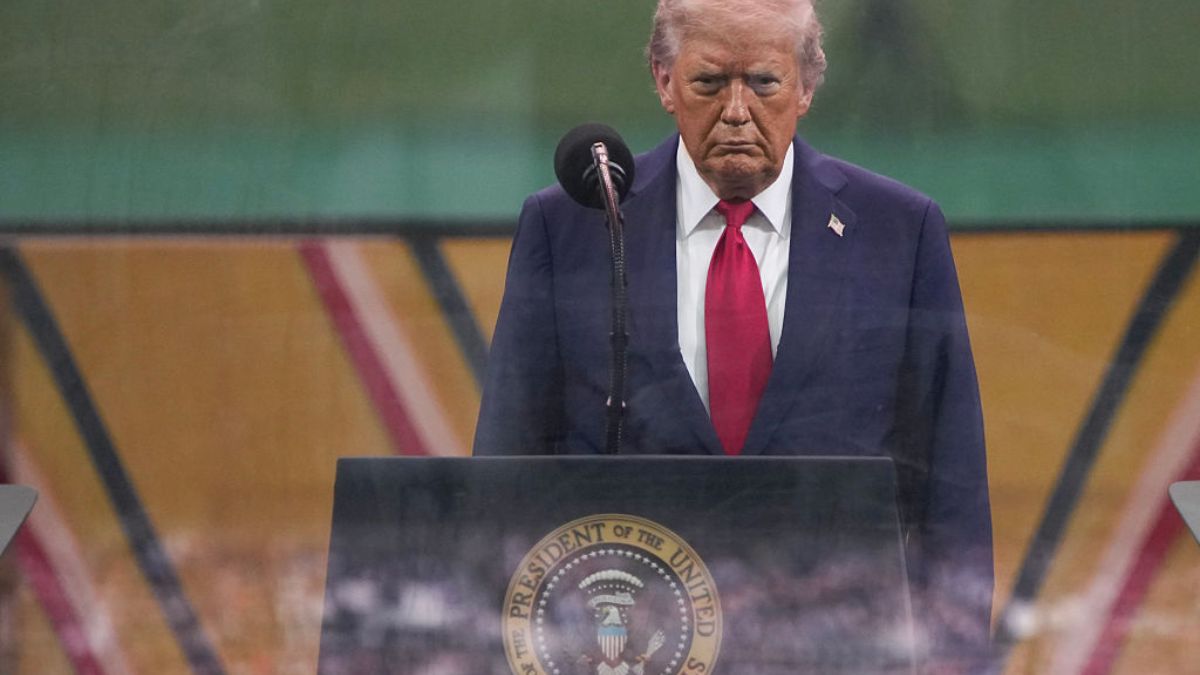
Former U.S. President Donald Trump cut short his attendance at the G7 summit in Canada on Monday, emphasizing his desire for a complete end to the ongoing conflict between Israel and Iran rather than a temporary ceasefire.
According to Politico, speaking to reporters aboard Air Force One after departing from the summit, Trump expressed strong support for Israel’s offensive against Iran, stating that Tehran’s nuclear capabilities must be eliminated entirely.
“I’m not looking for a ceasefire, we’re looking at better than a ceasefire,” Trump declared, adding that he wanted “not a ceasefire, a real end” to the conflict. He also mentioned that he was “not too much in the mood to negotiate.”
Trump dismisses intelligence reports while considering diplomatic options
The former president dismissed March testimony from Director of National Intelligence Tulsi Gabbard, who had informed Congress that intelligence suggested Iran was not developing nuclear weapons. Trump countered this assessment, stating, “I don’t care what she said. I think they were very close to having it.”
No one wants war, but Trump has also promised to take care of Iran. https://t.co/8CqVXoDqSP
— Carm Randazzo (@Carm_Randazzo) June 17, 2025
Trump confirmed plans to meet with his advisers in the Situation Room on Tuesday and is considering sending Vice President JD Vance and Middle East envoy Steve Witkoff to meet with Iranian officials. He criticized Iran for not negotiating a nuclear deal before the Israeli attack, saying, “They should’ve done the deal. Their cities have been blown to pieces, and they’ve lost a lot of people.”
The situation has become increasingly complex as Israel’s Prime Minister Benjamin Netanyahu has been urging Trump to join Israel’s military campaign against Iran’s nuclear sites, despite recent tensions where Netanyahu appeared to ignore Trump’s diplomatic preferences. Military experts note that Israel cannot target the underground Fordow facility without U.S. assistance, as only American forces possess the necessary 30,000-pound “bunker buster” bombs and B-2 stealth bombers capable of delivering them.
During his abbreviated stay at the G7 summit, Trump met with several world leaders, including Canadian Prime Minister Mark Carney, Japanese Prime Minister Shigeru Ishiba, and European Commission President Ursula von der Leyen. The only significant outcome was a proclamation regarding the implementation of a previously arranged U.S.-U.K. trade deal.
While Trump ultimately signed a joint G7 statement on the Israel-Iran conflict after initially refusing, he admitted to not being closely involved in its development, stating, “I haven’t seen the statement yet, but I authorized them to say certain things. I don’t know whether or not they said them correctly. But I think they probably did.”
The U.S. has responded to the escalating situation by deploying additional tankers and warships to the Middle East to protect American troops and assets, while also evacuating diplomatic personnel from the region amid growing tensions. The conflict intensified after Israel launched its initial strikes on Iran on Friday, claiming that Tehran’s nuclear program had exceeded acceptable limits, despite ongoing American diplomatic efforts to find a peaceful resolution.







